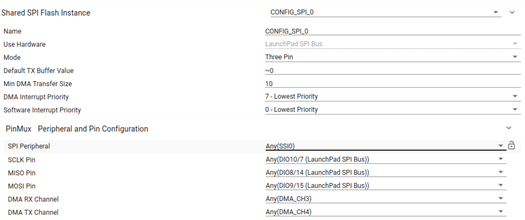Other Parts Discussed in Thread: SYSCONFIG, , LAUNCHXL-CC26X2R1
Hi
For SPI Flash memory, I need to know the maximum number of file access like 1)How many times we can open a file 2)maximum size 3)parallele opening
Can you help me to check this
With regards
Divya



